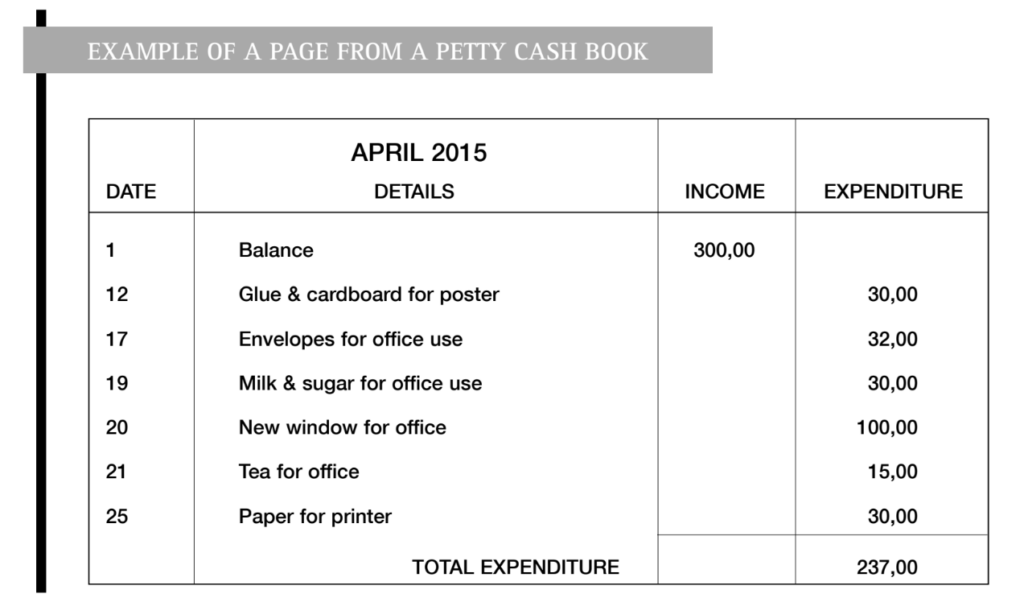Daily Records in an Advice Centre
The most important books that you must keep for your daily records are:
- Receipt book
- Petty cash vouchers and record book
Receipts
When anyone hands any money into the organisation you must give them a receipt. This receipt proves that money was handed in. You give the original receipt to the person who gave in the money, and the duplicate is left in your receipt book.
When you receive money you should deposit it in the bank as soon as possible. It must never be used as petty cash.
It is best to buy a receipt book from a stationery shop and to put your stamp on every page.

Petty Cash
You should keep some money in the office for small payments. If you need R100 for stamps, tea or milk, you will use petty cash to make these payments.
How does petty cash work?
- The treasurer draws an amount of money out of the bank, using a cheque. This amount could be R100 or more depending on what your monthly expenses are and how busy your office is.
- This money is put in a locked metal box called a petty cash box.
- If someone needs money to pay for something for the organisation, the treasurer will give it to them from the petty cash box.
All the petty cash that is spent must be recorded on a petty cash voucher.
The receipts or invoices or cash slips that you get when you pay for something must be kept. These slips should be pinned onto the petty cash vouchers.

The Petty Cash Book
At the end of each month the treasurer must record the information from all the vouchers into the petty cash book. You can use an ordinary school exercise book for the petty cash book. At the end of the month, the petty cash book must be balanced.
To do this you must:
- Add up the expenditure column to get a total. This is called total expenditure.
- The treasurer must then put back into the petty cash box the same amount of money s/he took out during the month. So, in other words, s/he must put back the total expenditure.
- He or she then records this under income and adds up the income column.

